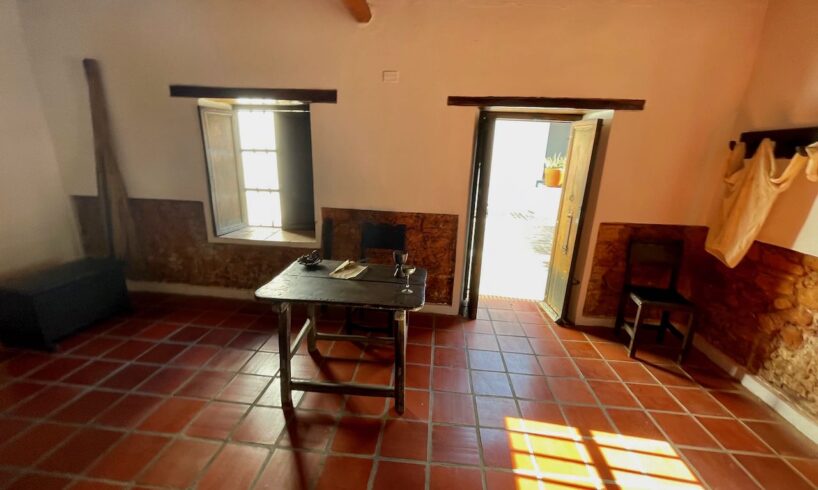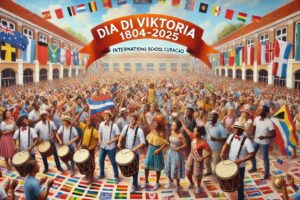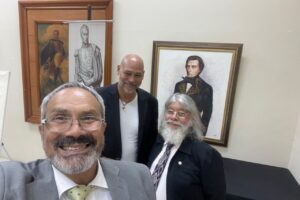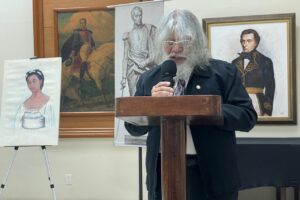
This title reflects the central themes of Figueroa’s analysis, emphasizing the betrayal, manipulation of power, and political dynamics surrounding Piar’s execution. It also captures revolutionary movements’ emotional and ideological tensions, strongly focusing on Piar’s complex role and Bolívar’s actions.
Ovidio Figueroa
The analysis of Manuel Carlos Piar’s execution, as presented in the excerpts from Ovidio Figueroa’s work, highlights several key themes: the manipulation of power, the betrayal of trust, the unjust legal proceedings, and the emotional turmoil experienced by Piar.
1. Hate and Defamation
Figueroa emphasizes the animosity between Simón Bolívar and Piar, particularly noting Bolívar’s immediate actions to discredit Piar through a manifesto. This document characterizes Piar in derogatory terms—calling him an “illegal,” a “mal hijo,” and a “ladrón”—which not only attempts to delegitimize Piar but also distorts his contributions to the independence movement. The contradiction in Bolívar’s statements—recognizing Piar’s services shortly after denouncing him—reflects the political machinations at play. Figueroa’s argument underscores the complexity of revolutionary alliances, where personal grievances can overshadow collective goals.
2. Arrest Under Deception
Figueroa details the circumstances of Piar’s arrest, suggesting that Bolívar felt threatened by Piar’s potential to rally troops and challenge his authority. The use of General Manuel Cedeño, under pretenses, to lure Piar into captivity illustrates a betrayal of trust. The narrative raises questions about the nature of Piar’s surrender—was it voluntary or coerced? This ambiguity highlights the often murky waters of revolutionary politics, where loyalty is frequently tested and manipulated.
3. The Manipulated Trial
The portrayal of Piar’s trial reveals a fundamental lack of fairness and transparency. Figueroa critiques the validity of the evidence presented against Piar, asserting that it was primarily based on hearsay from Bolívar’s loyalists rather than concrete proof. The composition of the military tribunal, filled with Bolívar’s allies, further compromises the integrity of the process. This scenario reflects a broader theme of how revolutionary leaders may prioritize political expediency over justice, often leading to the sacrifice of comrades deemed as threats.
4. Surprise at the Sentence
Piar’s astonishment upon receiving the death sentence emphasizes the emotional gravity of his situation. His shock—believing he would face exile rather than execution—demonstrates the deep betrayal he felt from those he considered comrades.
Figueroa’s recounting of Piar’s final moments evokes sympathy. He showcases a tragic figure caught in a web of political intrigue. This portrayal humanizes Piar, transforming him from a mere historical figure into a person with hopes, fears, and a profound sense of injustice.
Figueroa’s analysis presents Piar’s execution as a product of personal vendettas, manipulative political strategies, and flawed judicial processes. It paints a vivid picture of the internal conflicts within the independence movement, where the realities of power struggles often overshadow ideals of liberty and justice.
Piar’s fate serves as a poignant reminder of the cost of revolution, especially for those who may have been pivotal in the fight for freedom but found themselves on the wrong side of ambition and betrayal. This examination invites further reflection on how historical narratives are shaped by power dynamics and how political agendas often obscure the legacies of figures like Piar.
The analysis highlights a significant and complex moment in Venezuelan history, particularly regarding the tensions between Simón Bolívar and Manuel Carlos Piar. Figueroa’s critique of Bolívar’s actions during Piar’s execution underscores themes of betrayal, manipulation, and the darker aspects of revolutionary politics.
Key Points of Analysis:
1. Characterization of Bolívar: Figueroa depicts Bolívar as a duplicitous leader who resorted to slander and defamation to eliminate a rival despite Piar’s significant contributions to the revolutionary cause. This perspective suggests a profoundly personal and political rivalry, indicating that Bolívar viewed Piar as a military asset and a potential threat to his authority.
2. Use of Propaganda: The analysis points out that Bolívar’s manifesto against Piar was an attack on his character and an attempt to manipulate public perception. By labeling Piar as a traitor and a coward, Bolívar sought to justify his actions and consolidate power, revealing the use of propaganda as a political tool during revolutionary movements.
3. Circumstances of Arrest: Figueroa raises essential questions about the nature of Piar’s arrest, suggesting it was a calculated deception rather than a legitimate military action. This implies that Bolívar was willing to undermine the principles of trust and camaraderie that should have existed among revolutionary leaders, reflecting a willingness to prioritize personal and political gain over ethical considerations.
4. Judicial Manipulation: The discussion of the military tribunal that judged Piar highlights the lack of due process and fairness. Figueroa argues that the trial was a sham, composed of officers loyal to Bolívar, raising concerns about revolutionary justice’s integrity. This manipulation of legal processes showcases how revolutionary leaders can betray their ideals for political expediency.
5. Piar’s Reaction: Piar’s emotional response to receiving his death sentence adds a poignant human element to the narrative. His shock and despair illustrate the tragic consequences of political machinations and highlight the personal toll of revolutionary conflict. Piar’s disbelief at the betrayal of former comrades underscores the fragility of alliances in revolutionary contexts.
Overall Commentary:
Figueroa’s analysis provides a compelling critique of Bolívar’s leadership and the ethical dilemmas faced during the struggle for independence in Venezuela.
It prompts readers to reconsider the narratives of heroism surrounding figures like Bolívar, suggesting that power struggles, betrayal, and moral ambiguity often mar revolutionary history.
This view invites a deeper reflection on the nature of leadership, loyalty, and the sacrifices made in the name of freedom.
It also encourages examining how historical figures are remembered and the narratives constructed around their actions, highlighting the importance of critical historical analysis in understanding the complexities of revolutionary movements.
Ultimately, Figueroa’s perspective reminds us that history is not merely a record of events but also a narrative shaped by the interplay of personal ambitions, ideological conflicts, and the human experience.

Tico Vos is a professional photographer, producer, and tourism specialist. He has been documenting the History, Culture, and News of Curaçao. This site is a documentation of the history of Manuel Carlos Piar.





